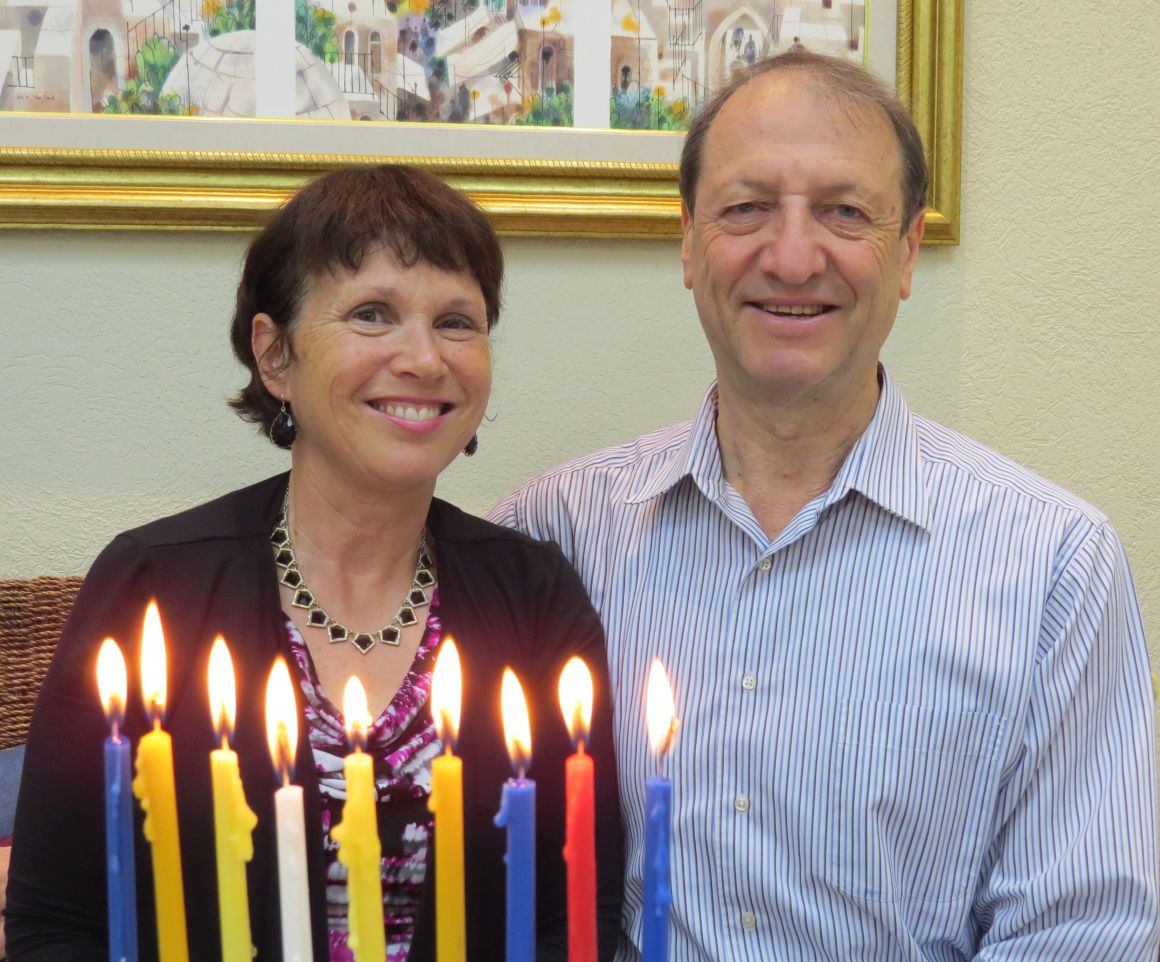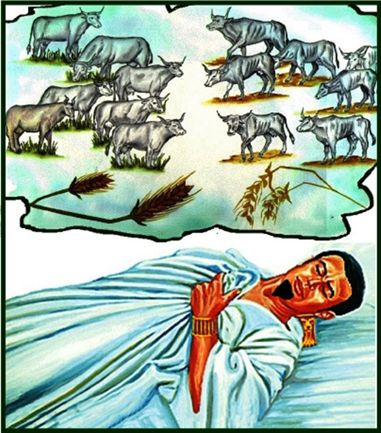Good and Bad at the Same Time?
GOOD AND BAD AT THE SAME TIME?
Shalom,
This Shabbat we will read the Torah Portion “Mi’Ketz” in the book of Genesis.
In this portion Torah tells us about Pharaoh’s repeating dream.
First, in his dream he saw seven good-looking, fat-fleshed, well-favored cows feeding in the reed-grass.
Then seven ill-favored and lean-fleshed cows came after and ate up the seven fat-fleshed cows.
Pharaoh awoke and then saw another dream about full and good seven heads of grain being swallowed up by seven thin and withered heads of grain. (Genesis 41, 1-7)
Here is how it is described in the Torah:
1 When two full years had passed, Pharaoh had a dream: He was standing by the Nile,
2 when out of the river there came up seven cows, sleek and fat, and they grazed among the reeds.
3 After them, seven other cows, ugly and gaunt, came up out of the Nile and stood beside those on the riverbank.
4 And the cows that were ugly and gaunt ate up the seven sleek, fat cows. Then Pharaoh woke up.
5 He fell asleep again and had a second dream: Seven heads of grain, healthy and good, were growing on a single stalk.
6 After them, seven other heads of grain sprouted–thin and scorched by the east wind.
7 The thin heads of grain swallowed up the seven healthy, full heads.
Then Pharaoh woke up; it had been a dream.
Pharaoh called all his advisers, magicians and wise men to interpret his dream, but no one could provide a satisfactory interpretation. (Genesis 41, 25-38).
25 Then Joseph said to Pharaoh, “The dreams of Pharaoh are one and the same. God has revealed to Pharaoh what he is about to do.
26 The seven good cows are seven years, and the seven good heads of grain are seven years; it is one and the same dream.
27 The seven lean, ugly cows that came up afterward are seven years, and so are the seven worthless heads of grain scorched by the east wind: They are seven years of famine.
28 “It is just as I said to Pharaoh: God has shown Pharaoh what he is about to do.
29 Seven years of great abundance are coming throughout the land of Egypt,
30 but seven years of famine will follow them. Then all the abundance in Egypt will be forgotten, and the famine will ravage the land.
31 The abundance in the land will not be remembered, because the famine that follows it will be so severe.
32 The reason the dream was given to Pharaoh in two forms is that the matter has been firmly decided by God, and God will do it soon.
33 “And now let Pharaoh look for a discerning and wise man and put him in charge of the land of Egypt.
34 Let Pharaoh appoint commissioners over the land to take a fifth of the harvest of Egypt during the seven years of abundance.
35 They should collect all the food of these good years that are coming and store up the grain under the authority of Pharaoh, to be kept in the cities for food.
36 This food should be held in reserve for the country, to be used during the seven years of famine that will come upon Egypt, so that the country may not be ruined by the famine.”
37 The plan seemed good to Pharaoh and to all his officials.
38 So Pharaoh asked them, “Can we find anyone like this man, one in whom is the spirit of God?”
The question is:
What made Yosef’s interpretation so appealing?
How was it substantially different from the various magicians’ interpretations?
We have to notice a certain nuance that might give us a clue to that:
In his description Pharaoh says:
וְהִנֵּה שֶׁבַע פָּרוֹת אֲחֵרוֹת, עֹלוֹת אַחֲרֵיהֶן מִן-הַיְאֹר, רָעוֹת מַרְאֶה, וְדַקּוֹת בָּשָׂר; וַתַּעֲמֹדְנָה אֵצֶל הַפָּרוֹת, עַל-שְׂפַת הַיְאֹר
3 After them, seven other cows, ugly and gaunt, came up out of the Nile and stood beside those on the riverbank.
Pharaoh and his magicians did imagine that the fat cows and heads of grains could have symbolize good abundant years and the ill-looking cows and thin heads of grains could have symbolize years of famine.
However the fact that good-looking cows and the ill-fleshed cows stood at the same time on the riverbank puzzled them.
How could abundance and famine could coexist at the same time?
Hence they tried to provide other different interpretations.
What Yosef did, not only did he provide a viable interpretation, in his advice to collect food during the good years and use it during the bad years, he provided the missing part of the puzzle explaining coexistence of abundance and famine.

Now a few expressions in Modern Hebrew related to dreams:
Khalom – ‘Dream’ – חלום
Khalomot Ne’imim – ‘wishing a good night sleep” (Lit. Pleasant Dreams) – חלומות נעימים
Khalomot Paz – another way to wish a good night sleep (Lit. Golden Dreams) – חלומות פז
Khalom Balahot – ‘Nightmare’ – חלום בלהות
Khalom Leil Kayitz – ‘Midsummer Night Dream’ – חלום ליל קיץ
Khalom Be’Hakitz – ‘Daydream’ (Lit. a dream during
awakening) – חלום בהקיץ
Shabbat Shalom,
Yoel & Orly
Orly & Yoel
You can find our previous posts at:
https://www.ulpanor.com/category/newletter/








